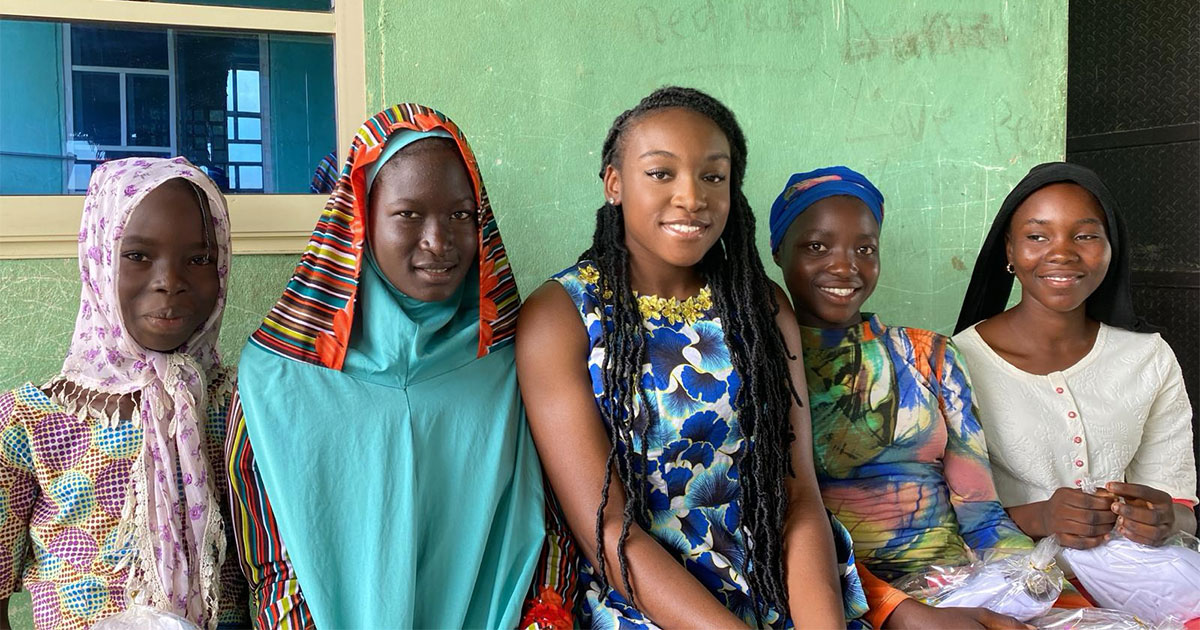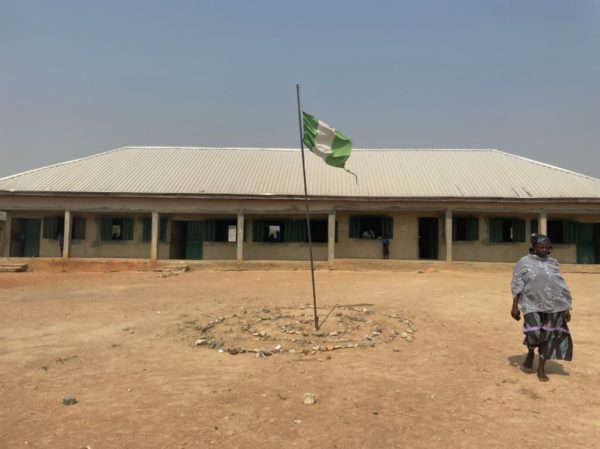A Student’s Story of Making a Difference in Nigeria

Editor’s Note: In this first-person account, Babson student Deborah Dibal ’25 offers personal reflections on her experiences in Nigeria.
My parents are both Nigerian immigrants who migrated to the United States over 20 years ago. They worked very hard to ensure my younger brother and I did not lack, while simultaneously ensuring we never forgot where we came from.
In the summer of 2016, my parents sent my brother and me off to Kaduna, Nigeria, so we could meet cousins, aunts, and uncles we hadn’t seen in years. That summer trip ended up turning into a two-year stay, where we formed relationships with our extended family, attended boarding school, and experienced life in Nigeria firsthand.
After our return, I noticed my outlook on the world and what I wanted to contribute to it had changed. Nigeria faces a lot of challenges such as lack of electricity, environmental issues, corruption, and so on, and I realized living in the U.S. offers me so many opportunities that people my age back in Nigeria don’t have access to.
When I look at Nigeria, however, I do not see a country with no hope. Rather, I see a land of infinite possibilities and avenues for change. My mission in life is to ask questions, research, inform, share stories, and make change in the country.
Last year, that mission led me to visit an internally displaced people (IDP) camp.
Learning More
IDP camps are for people who have lost their homes due to war or terrorism. The camps provide clothes and shelter until people find another place to live or it is safe to return back to their respective communities. Unfortunately, many people who go to these camps never get back on their feet, and some leave prematurely and end up homeless.
Wanting to learn more about IDP camps, I was put in touch with a volunteer from Gurku Interfaith Relocation Camp in Nasarawa, Nigeria. His name is Malki. He started at the camp because it needed activity directors and other people to fill vacant positions. He loves working there.

About 1,800 people, who have lost their homes due to war and terrorism, live at the Gurku Interfaith Relocation Camp.
According to a 2022 census, there are about 1,800 people living at Gurku. Malki helped set up a Zoom call with a handful of girls from the camp. These calls taught me a lot.
One girl I spoke with is named Sylvia. She is 10, and she has been living at the camp since 2015, moving there with her parents, brother, and three sisters. They came to the camp after the terrorist group Boko Haram invaded their city. Sylvia liked the camp but had issues with the lack of water. They procured water from an outside tap, but it wasn’t convenient because of long lines, and the purity of the water could not be trusted.
Another girl I spoke to is named Chezia. She is 17. Chezia told me that she had lost two siblings since she moved to the camp. One had died due to an accident, and another due to an untreated illness. If she could change something about the camps, she would try to get more access to medicines to treat curable ailments so that sick people didn’t have to die.
Another girl I interviewed is named Sadia. She is 15. During her family’s move to the camp, one of her sisters decided to go with their aunt instead and was kidnapped. Sadia still hasn’t seen her sister and has no idea where she is. Sadia aspires to be a teacher because she is inspired by the many teachers at the camp and how hard they work to instill knowledge and create some semblance of normalcy for the students.
A Place to Start
After some reflection, I decided to start a fundraiser for the Gurku Interfaith Relocation Camp. It is my dream and hope, one day, to graduate from Babson and start my own business in Nigeria and incorporate projects that will help uplift the community around me. I decided this fundraiser would be a great place to start.
From interviewing the girls, I learned the issue they faced the most in the camp was a lack of medical supplies, so I compiled a list of medical supplies and personal hygiene products that were most needed. And, I would be able to deliver these products in person, as my family and I were taking a trip to Nigeria.
After a long journey, we landed at Nnamdi Azikiwe International Airport in Abuja, Nigeria. As I stepped outside, I was instantly hit with the hot Abuja humidity. The next day, my dad made all the arrangements for us to make the drive to the camp. We loaded up the box of medical supplies, and my mom, dad, younger brother, and I all piled into the car.
“This project showed me the importance of not just thinking and talking about something you’re passionate about but taking action steps to find out how you can make a change.”
Deborah Dibal '25
At the camp, we were introduced to Malki, and he gave us a tour. We saw the clinic and the primary school and the houses where the residents stay. He explained that, as time went on and more people relocated to the camp, they had to expand. They currently have 145 houses in the camp.
As we continued on our tour, we walked past a group of children playing. Their clothes were old and covered in dust, and most were barefoot. Yet, they were still running around, playing with sticks and makeshift wheelbarrows they had built themselves. To many people, their situation may have looked bleak, but this was the life they knew and they were living it proudly.
Then, I heard the sound of giggling voices. It was the girls I had interviewed. They had just finished exams at school and were very excited to see me. We exchanged hugs and greetings and had a seat. I thanked them for taking time out of their day and educating me about life in the camp.
I understand that I did not revolutionize or drastically change the camp, but this project showed me the importance of not just thinking and talking about something you’re passionate about but taking action steps to find out how you can make a change. I want to inspire other Nigerians to do the same. We are capable of moving our country forward, one project at a time.
Posted in Community



